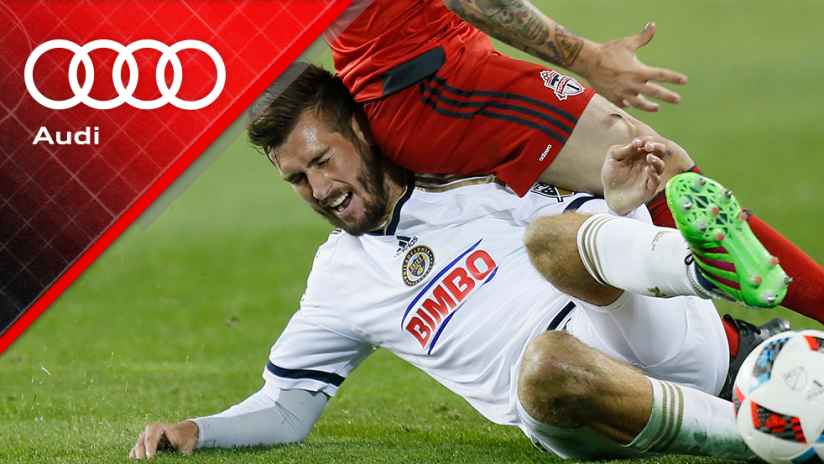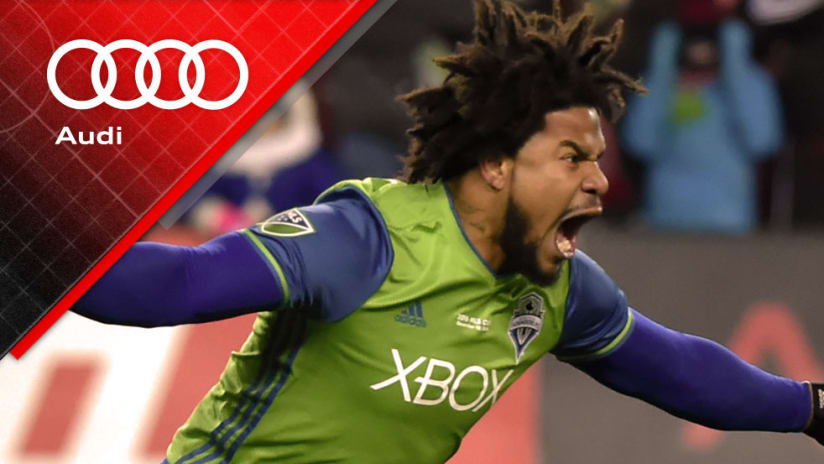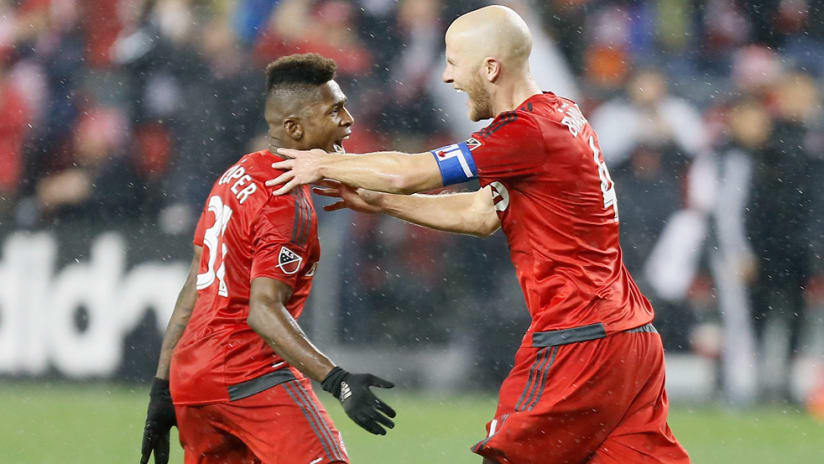In the first Knockout Round game of the Audi 2016 MLS Cup Playoffs, the underdog Philadelphia Union faced off against Toronto FC. And unfortunately for Philadelphia fans, the two teams' performances showed why the Union finished in sixth place in the Eastern Conference with a negative goal differential, while the Reds were only one point away from second place in the standings.
Going into the match, plenty of us anticipated Greg Vanney’s blue-chip talents up top would be difference makers. But interestingly enough, Toronto’s dangerous attackers were not truly at the core of the Union’s struggles.
Rather, it was Jim Curtin’s back four and their untimely lackluster performance that put their team under more pressure than any single or group of players from their Canadian opponents.
The defensive unit of Fabinho, Richie Marquez, Ken Tribbett and Keegan Rosenberry had two major self-inflicted wounds that were at the root of all sorts of other troubles for their team.
First, their spacing was just simply not good enough. Too often, three of the back four would end up occupied by a single Toronto player:
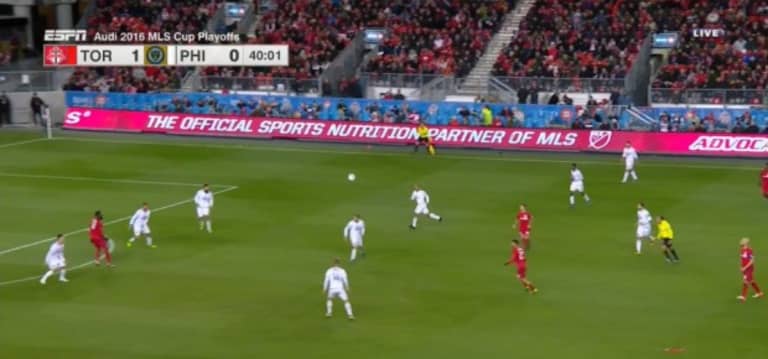
Both center backs and the right back are clustered in the middle of the field. This moment ended with Toronto spraying the ball to their left, which in turn forced a frantic recovery run toward his own goal for the Union’s Rosenberry.
Given sequences like this, it was no surprise that the Audi Player Index showed the Philadelphia back line collectively only made 4 successful tackles out of a possible 9. The Union defensive unit were so consumed with Jozy Altidore’s target play in the middle of the pitch that they conceded other TFC players the ability to receive the ball in threatening positions and without immediate pressure.
Gifting players like Justin Morrow – and especially the lethal Sebastian Giovinco – time to make decisions and space to settle passes, there was never a chance the Philadelphia defenders were going to have greater than 50 percent success in tackling.
Secondly, the Union defenders gave the ball away way, way too easily. Per the Audi Player Index, the same four Philadelphia defenders attempted 76 long passes, 50 of which were unsuccessful.
The Toronto back three only even attempted 40 long passes. This type of decision-making and disregard for possession made it almost impossible for Philadelphia to have a chance to win the match.
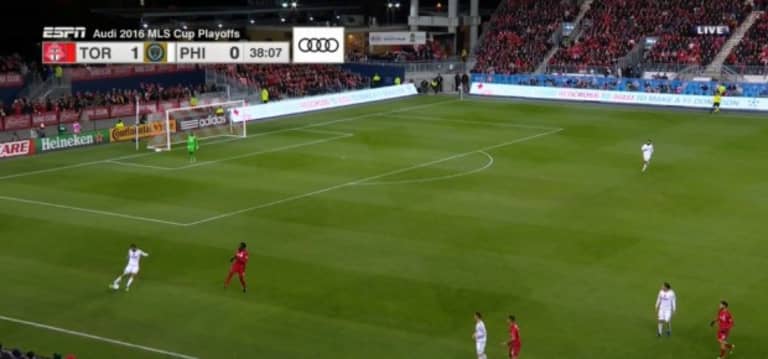
Above, Tribbett attempts to play a long ball that was easily intercepted. It is not hard to see that he could and should have made a smarter decision to pass back to his goalkeeper and just keep possession of the ball.
As a back three, Toronto’s Eriq Zavaleta, Drew Moor and Nick Hagglund tallied an Audi Index Player combined score of 756 (even including -119 for Zavaleta). Philadelphia’s back four had a combined score of 733.
It is not hard to conclude that when fewer defenders with fewer touches are more productive, as was the case in this match, the Union beat themselves as much as Toronto won this game.

